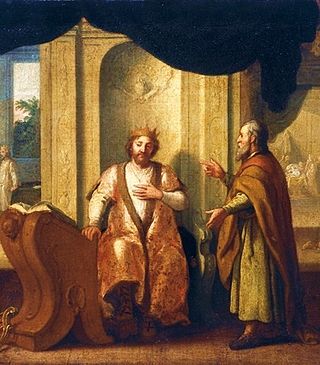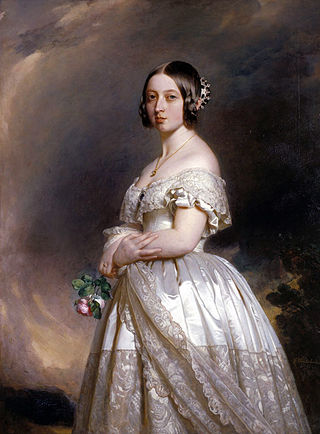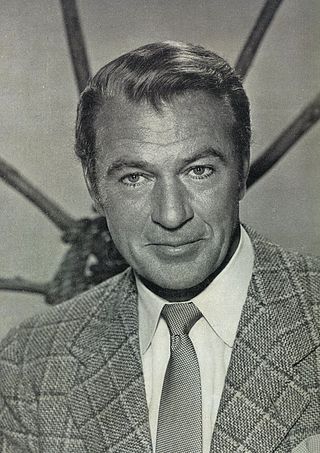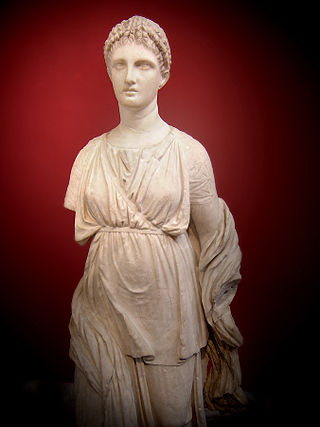Nessa is Nessa Diab, American radio and TV personality and partner of football quarterback Colin Kaepernick.
Contents
Nessa may also refer to:
Nessa is Nessa Diab, American radio and TV personality and partner of football quarterback Colin Kaepernick.
Nessa may also refer to:
Iris most often refers to:

Chloe, also spelled Chloë, Chlöe, or Chloé, is a feminine name meaning "blooming" or "fertility" in Greek. The name ultimately derives, through Greek, from the Proto-Indo-European root *ǵʰelh₃-, which relates to the colors yellow and green. The common scientific prefix chloro- derives from the same Greek root. In Greek the word refers to the young, green foliage or shoots of plants in spring.

Maeve, Maev or Maiv is a female given name of Irish origin. It comes from the Irish name Méabh, which was spelt Meadhbh in Early Modern Irish, Meḋḃ or Meaḋḃ in Middle Irish, and Medb in Old Irish. It may derive from a word meaning "she who intoxicates", "mead-woman", or alternatively "she who rules". Medb is a queen in Irish mythology who is thought to have originally been a sovereignty goddess.

Nathan is a masculine given name. It is derived from the Hebrew verb נָתָן meaning gave.
Gerald is a masculine Germanic given name meaning "rule of the spear" from the prefix ger- ("spear") and suffix -wald ("rule"). Variants include the English given name Jerrold, the feminine nickname Jeri and the Welsh language Gerallt and Irish language Gearalt. Gerald is less common as a surname. The name is also found in French as Gérald. Geraldine is the feminine equivalent.

Victoria is a feminine given name. It is also used as a family name.
Danny is a masculine given name. It is related and short to the male name Daniel. It may refer to:
Keenan is an Irish surname meaning 'ancient, distant' in the Irish language. It is derived from ÓCianáin 'descendant of Cianán'. The Ó Cianáin clan were hereditary historians to the Mac Uidhir.
Gray is a surname of English and Scottish origins.
Caitlin is a feminine given name of Irish origin. Historically, the Irish name Caitlín was anglicized as Cathleen or Kathleen. In the 1970s, however, non-Irish speakers began pronouncing the name according to English spelling rules as KAYT-lin, which led to many variations in spelling such as Caitlin, Ceitlin, Catelynn, Caitlyn, Katlyn, Kaitlin, Kaitlyn, Katelyn and Katelynn.
Cissy, Cissie or Cissi may refer to :
Barry is both a given name and an Irish and West African surname. The given name can be an Anglicised form of some Irish personal names or shortened form of Barrington or Finbarr, while the surname has numerous etymological origins, and is derived from both place names and personal names.

Gary and Garry are English language masculine given names.

Delia is a feminine given name, either taken from an epithet of the Greek moon goddess Artemis, or else representing a short form of Adelia, Bedelia, Cordelia or Odelia.
The surname Carson has several possible origins, primarily linked to Scottish and Irish roots.
Shane is mainly a masculine given name. It is an anglicized version of the Irish name Séaghan/Séan, which itself is cognate to the name John. Shane comes from the way the name Seán is pronounced in the Ulster dialect of the Irish language, as opposed to Shaun or Shawn.
Stewart is a Scottish surname, also used as a given name. It is possibly derived from the old English word "stigweard", a compound of "stig" meaning household, and "weard", a guardian (ward), or from the Gaelic Stiùbhart meaning steward. Alternative spellings are Stuart, Steward and Steuart. The surname Stewart has large concentrations in the United States, United Kingdom, Canada, Jamaica, New Zealand, Australia and elsewhere that has large Scottish or Ulster Scots diaspora.
Archie is a given name, almost exclusively masculine and a diminutive of Archibald. It may refer to:
Connor is an Irish male given name, anglicised from the compound Irish word Conchobhar, meaning 'lover of wolves' or 'master of hounds' and sometimes taken to mean 'hunter'. The most prominent person with this name in medieval Ireland was the Irish king Conchobar mac Nessa, a semi-legendary king in Ulster described in the Ulster Cycle of Irish mythology, and the name was probably first anglicised to Connor by the Hiberno-Normans.
Quinn is an Anglicised form of the Irish Ó Coinn or Mac Cuinn. The latter surname means "descendant of Conn". The surname Quinn is also rendered Ó Cuinn or Mac Cuinn in Irish. The surname is borne by several unrelated families in Ireland, especially in the northern province of Ulster and also the counties of Clare, Longford, and Mayo. According to the historian C. Thomas Cairney, the O'Quins were part of the Conmaicne Rein tribe in Ireland who came from the Erainn tribe who were the second wave of Celts to settle in Ireland from about 500 and 100 BC. The most notable family of the name are that of Thomond, a Dalcassian sept, who derive their surname from Niall Ó Cuinn who was slain at the Battle of Clontarf in 1014. This family was formerly represented by the Earls of Dunraven. Another family is that seated in Annaly, who were related to the O'Farrell lords of Longford. Another Quinn family was seated at An Chraobh, County Tyrone and they were related to the O'Neill Kings of Tír Eoghain and for whom they acted as Hereditary Quartermasters. Other families include one seated in Antrim; one seated in Raphoe; and one called Clann Cuain, seated near Castlebar. In the seventeenth century, the surname Quinn was common in Waterford. In 1890, the surname was numerous in Dublin, Tyrone, Antrim, and Roscommon. Quinn is one of the twenty most common surnames in Ireland. The surname Quinn is sometimes associated with Catholics, while Quin is associated with Protestants.